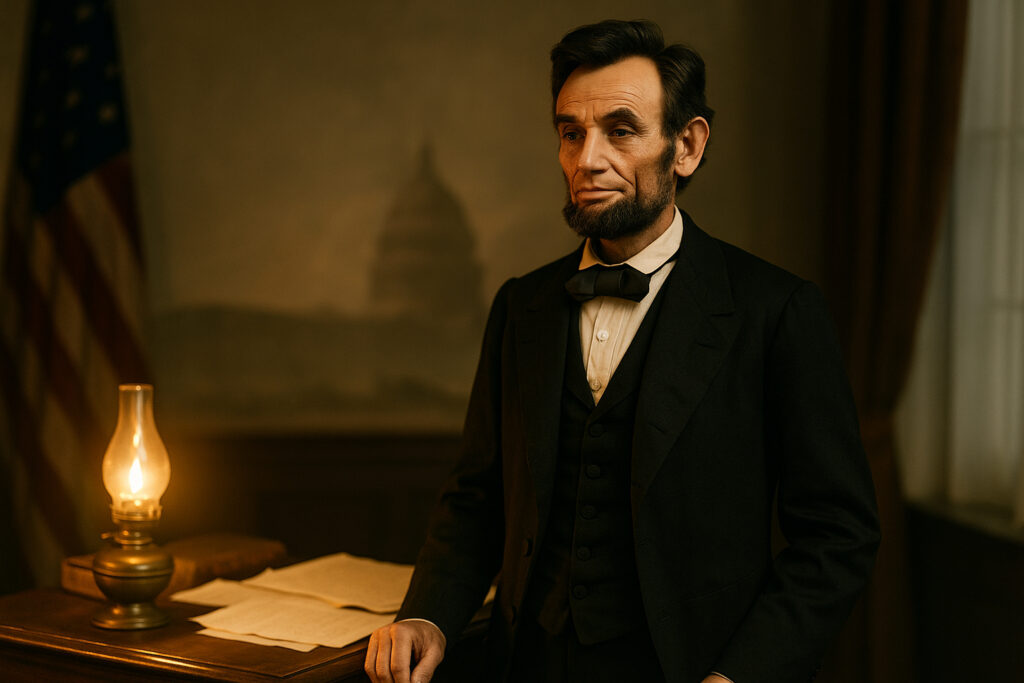Abraham Lincoln’s life embodies the American ideal of perseverance, integrity, and justice. Rising from humble beginnings to the highest office, he became the steady hand that guided the United States through its darkest hour—the Civil War. At a time when the nation was tearing itself apart, Lincoln’s vision of unity, equality, and democracy reshaped the moral and political foundations of America.
Early Life and Rise to Leadership
Born in a log cabin in Kentucky in 1809, Lincoln’s early life was marked by hardship and self-education. With a hunger for knowledge and an unwavering belief in fairness, he built a career as a lawyer known for honesty and empathy. His debates with Stephen A. Douglas in 1858 brought him national recognition, not for victory, but for his principled stand against slavery’s expansion.
When he became the 16th President of the United States in 1861, the country was already on the brink of collapse. States were seceding, and civil war loomed.
The Civil War and the Fight for Unity
Lincoln’s presidency was defined by one goal—to preserve the Union. He faced immense challenges: divided leadership, staggering casualties, and constant political opposition. Yet his calm determination never wavered. Through the Emancipation Proclamation in 1863, Lincoln transformed the war from a fight for union into a moral crusade for freedom.
He balanced compassion with resolve, showing deep humanity toward soldiers and citizens alike. His words—especially in the Gettysburg Address—captured the essence of democracy: government “of the people, by the people, for the people.”
Legacy of Freedom and Equality
Lincoln’s assassination in 1865, just days after the war’s end, turned him into a martyr for unity and liberty. His leadership not only preserved the nation but redefined it. The abolition of slavery and his vision of equal rights laid the groundwork for America’s future struggles and progress.
Today, his legacy lives on as a reminder that moral courage and empathy are the true hallmarks of great leadership.
Conclusion
Abraham Lincoln was more than a wartime president—he was the conscience of a divided nation. His leadership saved the Union, his compassion gave meaning to liberty, and his vision continues to guide the United States toward its highest ideals. Lincoln’s life proves that true greatness lies in leading with both strength and heart.
